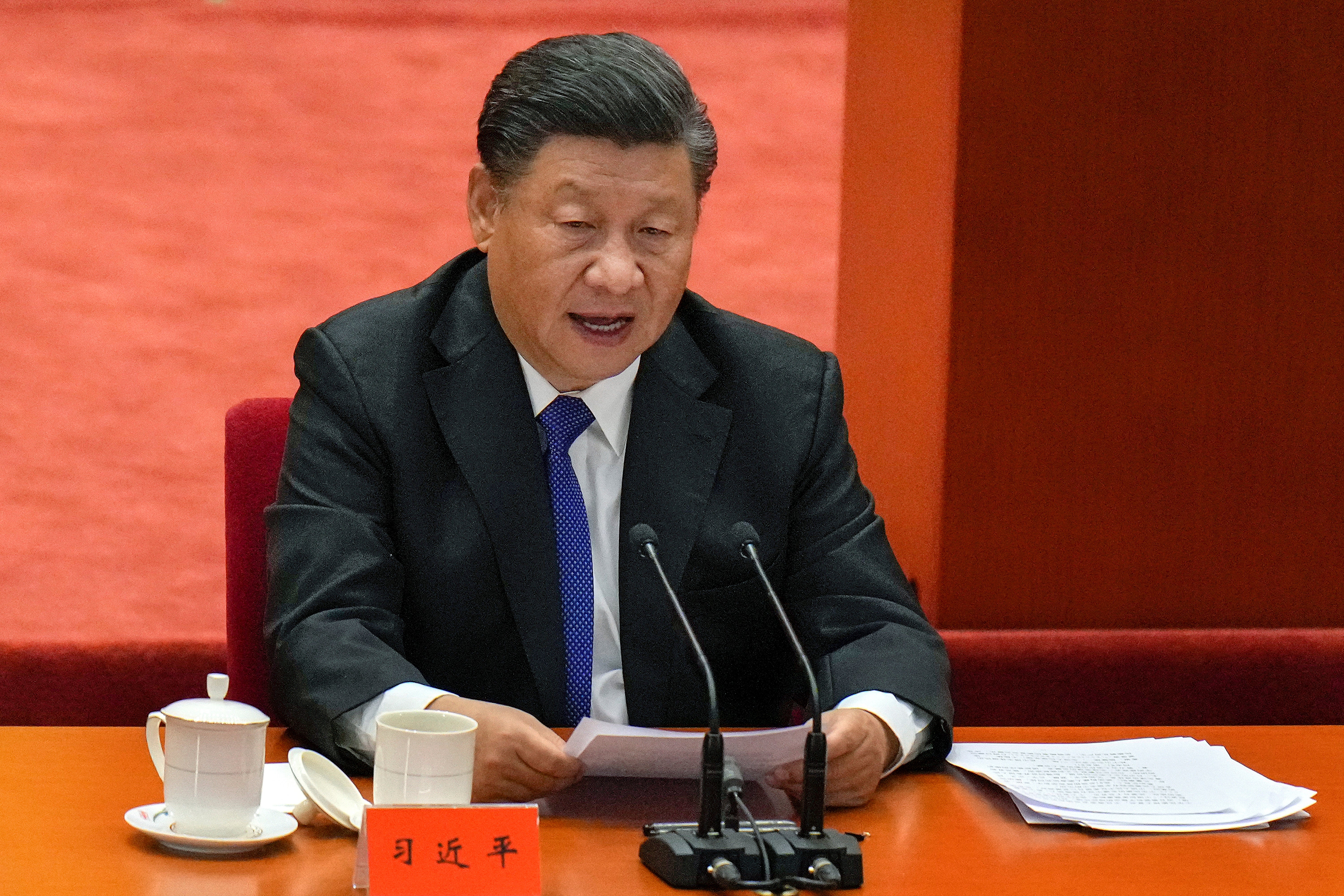China’s Communist Party meets to cement Xi Jinping’s grip on country ahead of unprecedented third term
Xi Jinping will likely retain his grip on power as he heads all three of China’s power centres

The Communist Party of China (CPC) is holding a key four-day conclave to strengthen Chinese president Xi Jinping’s grip on power by laying the foundation of a third term for him and pass a rare historical resolution.
The sixth plenum began with a closed-door meeting on Monday and has been attended by hundreds of senior officials of the ruling CPC’s central committee.
Mr Xi, in his opening speech, issued a draft resolution encompassing the “major achievements and historical experience” of the CPC as it completes 100 years of rule, reported state-run news agency Xinhua.
About 400 permanent and alternate members of the CPC Central Committee are taking part in the plenum, according to several reports.
The historical resolution is the third one to be issued since the CPC was founded in 1921. The first two were issued by Mao Zedong, who called himself China’s only true leader and Deng Xiaoping, whose resolution had condemned Mao’s rule.
The current resolution will look back at the key events in the party’s 100-year-old history, reinforce unity in the party and dictate how Mr Xi’s authority and policies are viewed as successes.
The plenum is also said to be the last major meeting before Mr Xi’s second five-year term ends, setting the stage for next year’s elections.
It is widely believed that the 68-year-old will retain his grip on power as he heads all three of the country’s power centres. He is the general-secretary of the CPC, the chairman of the Central Military Commission, and is the Chinese president.
The Chinese president will, in fact, likely remain in power for the rest of his life because of a major constitutional amendment in 2018 that removed the two-term limit for China’s president.
His predecessor Hu Jintao had voluntarily retired after two successive terms.
With nine years of rule under his belt, Mr Xi has emerged as one of the country’s most powerful leaders. At the 2016 plenum, the CPC had given him the title of “core” leader – a status that was enjoyed by Mao.
Analysts have pointed out that the Chinese president hopes to cement his place in history, as the plenum and the resolution will help shape domestic politics for decades to come.
The agenda of the meeting, however, is top secret. A communique of the discussions will be released only after the conclave concludes.
Earlier plenary sessions were used to address party affairs that included key appointments, ideology and party-building agendas.
It remains to be seen if the party will follow the precedent on its leadership changes, including the removal of members who passed the retirement age of 68.
More than a dozen party members will be older than 68 by October next year.
Ahead of the meeting, China’s state-run media Xinhua appeared to eulogise Mr Xi’s achievements and his crackdown on corrupt officials.
Describing Mr Xi as a tireless, selfless and scholarly servant of the people, the agency published a 5,000-word essay titled “Xi Jinping, the man who leads CPC on new journey”. The profile portrays the president as a man with “little time for himself”, for whom “happiness is achieved through hard work”.
Mr Xi is “a man of determination and action, a man of profound thoughts and feelings, a man who inherited a legacy but dares to innovate, and a man who has forward-looking vision and is committed to working tirelessly,” said the essay.
Mr Xi’s rule, however, has repeatedly been said to be authoritarian by critics, who point to the curbing of rights, censorship and the repression of Muslim minorities as indicators of the nature of his rule.
Subscribe to Independent Premium to bookmark this article
Want to bookmark your favourite articles and stories to read or reference later? Start your Independent Premium subscription today.

Join our commenting forum
Join thought-provoking conversations, follow other Independent readers and see their replies